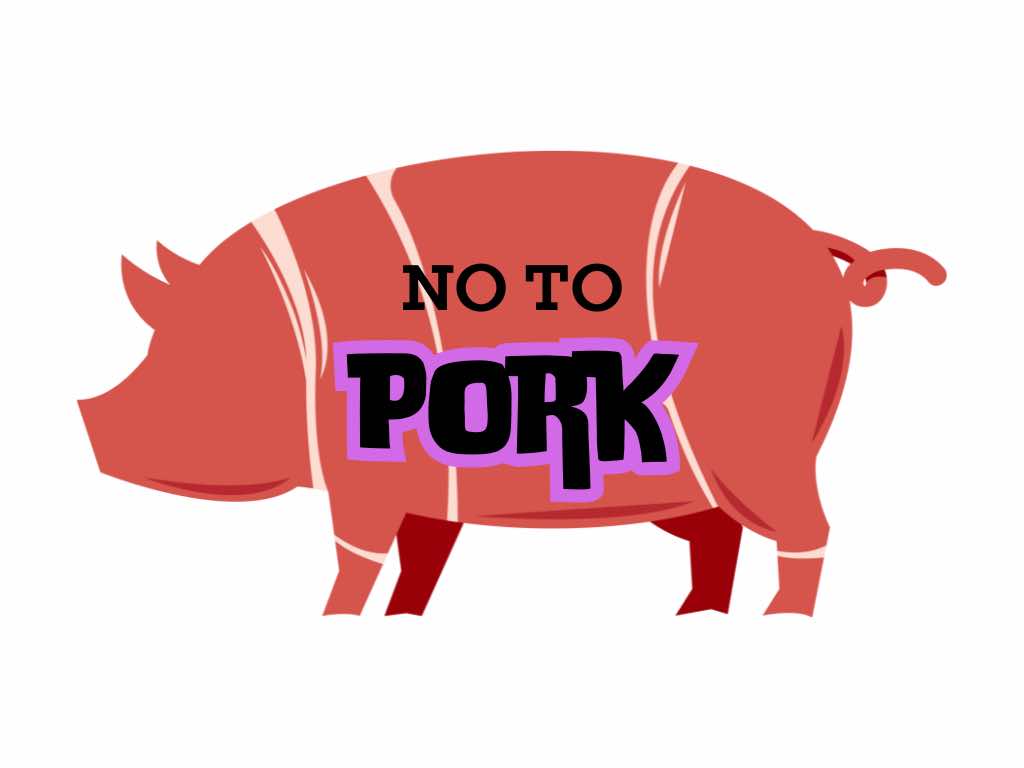
Why Don't Muslims Eat Pork? Knowing Islamic Dietary Laws
|
|
Time to read 4 min
Welcome to One Stop Halal!
Written by: Samir P.
|
|
Time to read 4 min
One of the most well-known dietary restrictions in the world is the prohibition of pork consumption among Muslims. This restriction is deeply rooted in religious beliefs and practices, and understanding it requires delving into the principles of Islam, the Holy Quran, and the teachings of the Prophet Muhammad. In this blog, we will explore the reasons behind this prohibition, its religious significance, and its impact on the daily lives of Muslims.
Islamic dietary laws, known as Halal, are derived from the Quran and Hadith (the sayings and actions of Prophet Muhammad). Halal means "permissible" or "lawful," covering many practices, including what Muslims can eat and drink. The opposite of Halal is Haram, which means "forbidden." Pork, specifically, is classified as Haram.
The primary source of Islamic law is the Quran. Several verses explicitly mention the prohibition of pork. For instance, in Surah Al-Baqarah (2:173), it states:
"He has only forbidden to you dead animals, blood, the flesh of swine, and that which has been dedicated to other than Allah."
Similar prohibitions are found in Surah Al-Ma'idah (5:3), Surah Al-An'am (6:145), and Surah An-Nahl (16:115). These verses clearly categorize the flesh of swine as impure and thus forbidden for consumption.
The prohibition of pork is not merely a dietary rule; it carries deep religious significance. By abstaining from pork, Muslims demonstrate their obedience to Allah's commands. This act of obedience is a form of worship, reflecting their commitment to their faith.
Furthermore, the dietary laws in Islam (Halal and Haram) are intended to promote physical and spiritual well-being. Pork, in particular, is considered impure and harmful, which aligns with the broader Islamic principle of preserving one's health and purity.
The prohibition of pork is not unique to Islam; it is also present in Judaism. This shared dietary restriction highlights the common roots of these Abrahamic religions. Historically, the prohibition might have also been influenced by the health concerns associated with pork consumption in ancient times, such as trichinosis, a disease caused by parasitic worms found in undercooked pork.
Welcome to your favorite butcher shop. We carry custom cuts of beef, chicken, lamb, goat, grass-fed beef, wagyu, deli, and more. We ship across the United States in 1-2 business days.
While the primary reason for avoiding pork is religious, health considerations support this practice. If not properly cooked, pork can carry various parasites and diseases. Trichinosis, caused by the Trichinella worm, is one such example. Although modern farming and cooking methods have significantly reduced these risks, religious prohibition remains a precautionary measure for maintaining cleanliness and health.
Many Muslim-majority countries and communities have established Halal certification systems to ensure compliance with dietary laws. These certifications guarantee that food products meet religious requirements. Halal certification extends beyond avoiding pork; it also involves ensuring that animals are slaughtered in a specific manner, known as Zabiha, which minimizes the animal's suffering.
In a globalized world, Muslims often encounter diverse dietary practices. Traveling or living in non-Muslim majority countries can pose challenges in adhering to Halal dietary laws. Many Muslims rely on Halal restaurants, certified products, and sometimes vegetarian or vegan options to avoid consuming Haram foods.
The prohibition of pork also influences social interactions and cultural practices. For instance, during social gatherings, Muslims must ensure that the food served is Halal. This can affect their participation in events where pork is commonly served, such as barbecues or traditional Western holidays like Christmas and Easter.
In multicultural societies, this dietary restriction fosters an environment of mutual respect and understanding. Friends, colleagues, and neighbors of Muslims often become more aware of Halal dietary requirements, leading to more inclusive and considerate social practices.
The food industry has adapted to cater to the needs of Muslim consumers by offering a wide range of Halal products. However, challenges remain, especially in regions where Halal food is not readily available. Muslims must often be vigilant, reading labels and verifying the sources of their food.
There are several misconceptions about the prohibition of pork in Islam. Some people mistakenly believe that it is solely due to health concerns, ignoring the religious and spiritual aspects. Others may think that Muslims avoid pork to isolate themselves from other cultures. In reality, the prohibition is a deeply held religious conviction that goes beyond mere dietary preferences.
At One Stop Halal, you will find assorted collections of butcher cuts for various kinds of animals. All our products are locally harvested in the USA, ethically raised, and hand-slaughtered the old-fashioned way: by a man with a knife.
The prohibition of pork in Islam is a multifaceted practice rooted in religious doctrine, historical context, and health considerations. For Muslims, abstaining from pork is a demonstration of their faith and obedience to Allah's commands. It reflects a commitment to purity, health, and spiritual well-being. Learning why Muslims don't eat pork requires recognizing its religious significance and the broader principles of Halal dietary laws.
As our world becomes more interconnected, fostering mutual respect and understanding of different cultural and religious practices becomes increasingly important. By appreciating the reasons behind the prohibition of pork in Islam, we can contribute to a more inclusive and respectful global community.

© 2026 One Stop Halal, Inc.